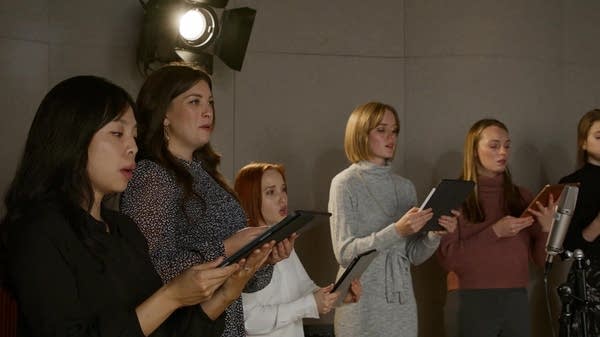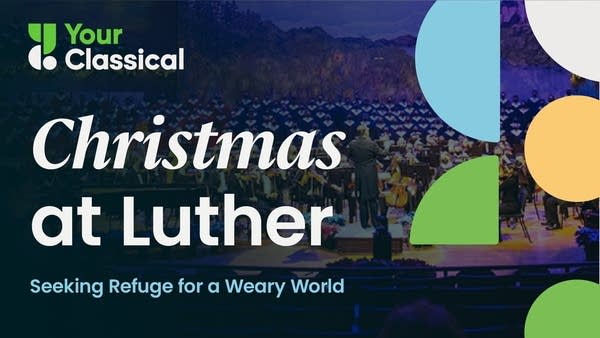
Music audiences hear works in total, the sum of all their parts. Unless they're taking in a solo performance — a Bach cello suite, for example — listeners are usually presented with multiple voices or instruments playing together in deliberate ways. They are not hearing only the altos or just the clarinet part, but all the parts together. Chords of all kinds, winding contrapuntal lines, interlocking rhythms, and multiple musical ideas create a full aural experience for the listener.
Performers, however, focus on single parts only — and in the case of most instruments, including voice, single pitches only. While someone in the audience might hear an interesting chord with peculiar dissonances, the individual musicians are focused on the particular notes for which they're responsible. As a singer, I often consider the subjective experience I have with my part when singing in a choir or ensemble. My relationship with a piece of music will certainly be different than that of someone singing a different part, than the conductor, than a listener, or even someone singing the same part as me.
An example that comes to my mind involves the work of contemporary composer Eric Whitacre. A common feature of his popular music is cluster chords that wash over audiences and envelop them in sound. His choral piece Water Night is a fine example of this compositional style. Near the end, right before the reprise of the opening, is a particular chord that almost always brought about rather intense emotions within me when the choir I sang with at the time performed it. Part of it was the overall chord, but much of what I felt derived from the note I sang within it, how the tenor line approached that note via the preceding pitches, and the overall context of my life at that point. In other words, I would not feel the same way about that chord if I was singing different pitches or even if I did sing the same part today.
These experiences do not happen only with atypical sounds. Even with more standard, diatonic music, I have these interactions with certain pitches. In a major chord, like one that might end a piece, tenors and altos are often given the mediant and dominant, or third and fifth, while the basses and sopranos share the tonic, or root. Singers in each of those sections have specific responsibilities in terms of making a cohesive chord. If my section takes the mediant, we must ensure we don't sing flat, otherwise the sound might veer too close to minor. If we have the dominant, it must lock in precisely with the those singing the tonic or else the chord's integrity will be lost. Special consideration goes into every note sung.
It's no great secret that musicians strive to play or sing in tune, but my point is that each part in a work, and sometimes an individual note within a part, contains a personality that is unique compared to the others as well as different for each musician executing it. This subjectiveness creates rich, rewarding experiences for musicians, and it's also why you'll find that musicians playing the same piece or part will sometimes have widely varying opinions. The audience member who consumes the entirety of the sound at once has a wholly different encounter. How strange and wonderful it is that in a hall filled with 1,500 people, 1,500 singular experiences occur simultaneously during a performance.
David Lindquist is a writer, teacher, and singer living in St. Paul.
Interested in writing about classical music for Classical MPR? Have a story about classical music to share? We want to hear from you!
Love the music?
Show your support by making a gift to YourClassical.
Each day, we’re here for you with thoughtful streams that set the tone for your day – not to mention the stories and programs that inspire you to new discovery and help you explore the music you love.
YourClassical is available for free, because we are listener-supported public media. Take a moment to make your gift today.










